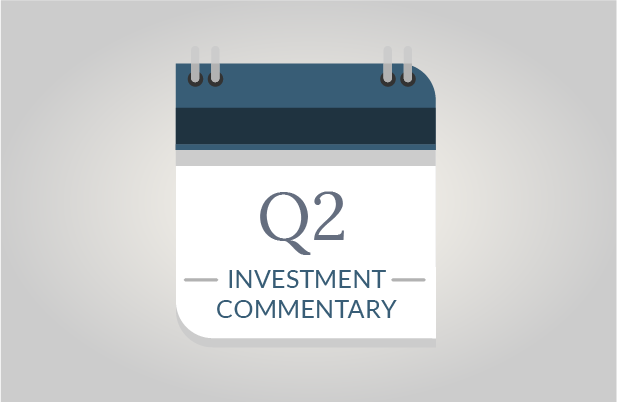In times of market volatility and heightened recession probabilities, controlling your finances can impact your emotions as well as your financial wellbeing. However, proper planning can offer reassurance and even provide opportunities to improve your financial health. Here are some ideas for financial decisions to ponder during an unstable market and softening economy.
Cash Flow Adjustments
If your income has declined either from slower portfolio growth, reduced income, or a job loss, it’s important to re-examine spending to look for reductions above normal living costs. These might include vacations, home improvement, and eating out. If additional spending is needed through funding from assets, consider sources that could be more advantageous such as cash to avoid selling investments at losses. This is why it is important to maintain liquidity in a portfolio for up to 5 years of anticipated expenses, plus a cash emergency fund. If these reserves become low, evaluate timing for replenishing to cover anticipated cash needs. It may be worth boosting those reserves when you take into account the possibility of inflation remaining higher than in previous years.
If you have any debt, consider whether loans should be refinanced or consolidated if lower interest rates are available. Often paying debts off sooner than required can have a detrimental effect as it reduces your financial resource in cash and investments. Furthermore, selling investments would currently lock in losses, potentially stunting future growth and income opportunity. If you do elect to pay off any debts, consider paying off high interest debts such as credit cards sooner.
Retirement Adjustments
If the investment markets or the economy have you worried about employer downsizing or less work, consider alternatives for future income. This might include trying to work longer to make up for lost income. Also revisit your retirement goals such as travel, buying a new home, making charitable gifts, or financially helping your children. These may need to be delayed or adjusted. Putting extra expenses off for a year or two or adjusting future expectations can make a difference in your long-term investments and financial health.
If you’re already retired and you can postpone or reduce expenses, try to temporarily reduce any automated withdrawals coming from your investment accounts (if you’re currently taking withdrawals). If you are required to sell to take an IRA distribution, consider transferring that amount to your taxable account and re-invest to stay in the market. Also, if you’re considering downsizing, it could make sense to do so now while the housing market remains relatively strong.
Portfolio Adjustments
Ideally, your portfolio allocation decisions should have already considered the potential impacts of volatility and downside potential before a correction or potential recession. Adjusting after the fact can lock in losses if you decide to become more conservative.
If you have ample resources in cash and bonds, this might be an opportunity to increase your exposure to stocks at deflated prices. The market has an upward bias and history of beating inflation over the long term. This is illustrated by the fact that the S&P 500 has been negative only 25 of the past 94 years. For those making contributions to IRAs or retirement accounts, lower investment values could be a good to reason to begin to contribute now or increase your contribution amounts. For those that have built up large balances in tax-deferred retirement accounts, conversion to a Roth IRA could also be beneficial if you’re in a low tax bracket this year. If you happen to have seen your income reduced, the Roth conversion could be an opportunity to consider if you might be able to pay conversion taxes at a lower bracket, and at an amount that you can afford
Tax Adjustments
Investment market downturns can offer the opportunity to make lemonade out of lemons from a tax standpoint. If you are holding highly appreciated investments that you would ideally like to reduce, and you have other losses in your portfolio, you might be able to offset capital gains with losses. Doing so could help you to achieve more ideal long-term positioning, or possibly help to source any withdrawal needs with a modest or zero tax impact. Furthermore, the Internal Revenue Service (IRS) allows you to claim up to $3,000 in investment losses per year, with excess losses carried forward to future tax years. For example, realizing $9,000 in losses in one year could afford you a $3,000 income reduction over the next three years. Or you could use the loss to offset future gains. This process is what is referred to as tax-loss harvesting.
What’s Next?
Each individual’s personal finances are unique and highlight the importance of working closely with a financial professional to look for adjustments and opportunities. It’s always wise to consult with your CPA or financial planner before making any decisions. SageVest Wealth Management goes above and beyond the services of traditional investment and financial advisors. We provide a true wealth management approach that integrates these decisions and others into your investment and broader financial decisions. Opportunistic investment and tax planning are always integral to our wealth management approach. We invite you to contact us to learn how you can make a wise investment in your future.




